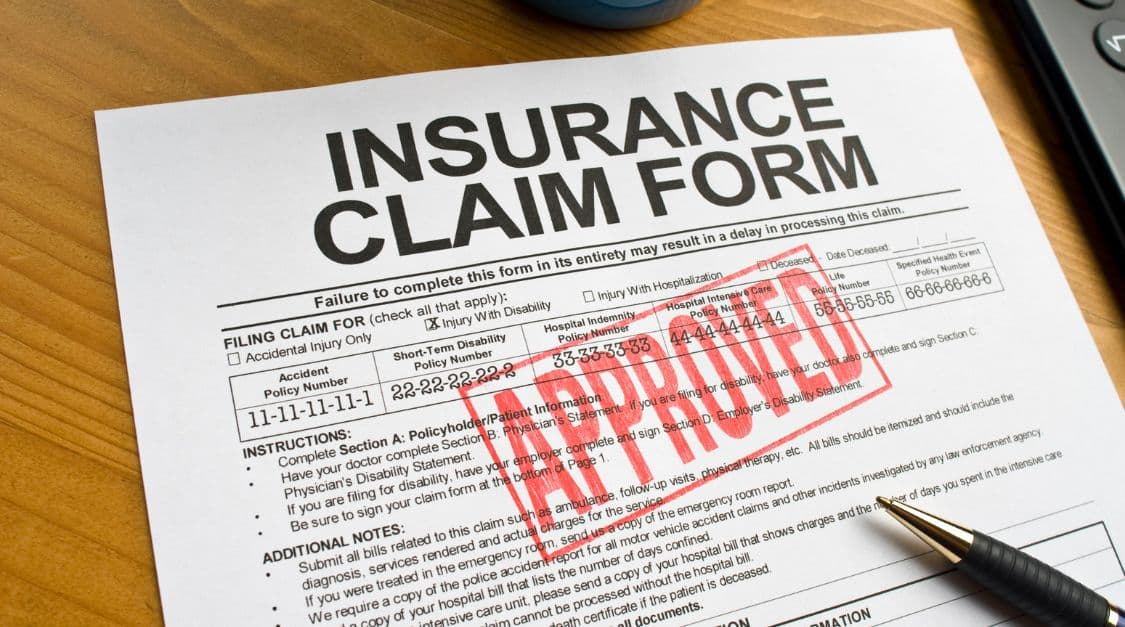When your car is declared totaled by your insurance company, it can be a stressful and overwhelming experience.
Not only do you have to deal with the loss of your vehicle, but you also need to figure out how to get the most insurance money for your totaled car.
It’s important to understand your rights and options in this situation, as well as the strategies that can help you receive the maximum amount of insurance money for your totaled car.
In this comprehensive guide, we’ll explore the top tips and tactics for getting the most insurance money for your totaled car, so you can navigate this process with confidence and come out with the best possible outcome.
Understanding Car Insurance and the Concept of a Totaled Car

Car insurance is something that many of us have, but few truly understand. And when it comes to a totaled car, the confusion can only escalate. So, let’s break it down.
When your insurance company declares your car totaled, it means that the cost to repair your vehicle exceeds a certain percentage of its pre-accident value.
This threshold, known as the total loss threshold, varies by insurance company and state. Once your car is deemed totaled, the insurance company will typically offer you a settlement based on the pre-accident value of your car.
Understanding how your car insurance policy defines a totaled car and what factors contribute to its valuation is crucial. Knowing the terms and conditions outlined in your policy can help you navigate the claims process with confidence.
Plus, being informed can give you the upper hand when negotiating for the highest possible settlement.
Determining the Pre-Accident Value of Your Car
Determining the pre-accident value of your car is a crucial step in the process of getting the most insurance money for your totaled car.
This value serves as the foundation for the settlement offer from your insurance company. So, how do you determine the pre-accident value?
First, it’s important to understand that your car’s value is not based on what you originally paid for it, but rather on its current market value.
You can start by researching the prices of similar vehicles in your area, taking into account factors like mileage, condition, and any additional features your car may have.
Next, you can use online valuation tools or consult with independent appraisers to get a more accurate estimate.
These professionals will consider various factors such as the make, model, year, and condition of your car to determine its value.
Strategies to Negotiate the Highest Possible Settlement

Negotiating the highest possible settlement for your totaled car can be a challenging process, but with the right strategies, you can maximize your insurance payout.
First, gather all relevant information and documentation about your car’s value, including repair estimates and comparable vehicle prices. This will strengthen your position when negotiating with the insurance company.
Be prepared to negotiate and don’t settle for the first offer. Research and understand the total loss threshold in your state, as this can impact the settlement amount.
Highlight any unique features or upgrades that could increase your car’s value. If you believe the initial offer is too low, provide evidence and reasoning to support your counteroffer.
Managing the Claims Process Efficiently

Navigating the claims process can be overwhelming, but with some organization and efficiency, you can make it a smoother experience.
One important step in managing the claims process efficiently is to stay organized. Keep all documentation, including repair estimates, correspondence with the insurance company, and any other relevant paperwork in one place. This will help you stay on top of things and easily access the information you need.
Another key aspect is to be proactive in your communication with the insurance company. Follow up on any outstanding requests or inquiries promptly, and keep a record of all conversations. Being proactive shows the insurance company that you are engaged and committed to getting a fair settlement.
Additionally, it can be helpful to stay informed about the claims process. Educate yourself about the steps involved and the timeline for resolution.
This will give you a better understanding of what to expect and help you plan accordingly.
Tips on Dealing With Insurance Adjusters
Dealing with insurance adjusters can be a daunting task, but it’s important to remember that they are just doing their job. Here are some tips to help you navigate this process with confidence and get the most out of your totaled car claim.
First and foremost, be prepared. Have all your documentation and evidence in order before speaking with the insurance adjuster. This includes repair estimates, photographs of the damage, and any other relevant information. Being organized and having everything at your fingertips will show the adjuster that you mean business.
Next, be honest and transparent. Provide accurate and detailed information about the accident and the condition of your car. Honesty is crucial in building trust with the adjuster and can help you get a fair settlement.
When negotiating with the adjuster, be firm but respectful. Remember, they have guidelines to follow, but that doesn’t mean you can’t advocate for yourself. Be persistent and don’t be afraid to ask questions or challenge their initial offer if you believe it’s too low. Providing evidence, such as comparable vehicle prices or repair estimates, can help support your counteroffer.
It’s also essential to listen carefully to the adjuster and take notes during the conversation. This way, you can refer back to the details discussed and avoid any misunderstandings or miscommunications.
Finally, if you’re feeling overwhelmed or unsure about the negotiation process, don’t hesitate to seek advice from professionals or consult an attorney. They can provide guidance and ensure that your rights are protected.
Ensuring Compliance with Legal Requirements and Processes
Navigating the claims process for a totaled car involves more than just negotiating with the insurance company. It’s important to ensure that you are complying with all legal requirements and following the proper processes.
This includes understanding your state’s specific laws and regulations regarding totaled cars and insurance claims.
First, familiarize yourself with your state’s total loss threshold. This is the percentage at which your car is considered a total loss and varies by state. Knowing this threshold will help you determine if your insurance company’s offer is in line with what is required by law.
Next, make sure you understand the specific steps and paperwork that need to be completed for your insurance claim. This may include providing a copy of the police report, submitting a written statement about the accident, or providing documentation of any medical expenses.
Additionally, it’s important to be aware of any deadlines for filing your claim. Insurance companies typically have a specific timeframe in which you need to report the accident and file your claim. Missing these deadlines could result in a denial of your claim.
Real-Life Examples of Successful Claim Negotiations
Let’s dive into some real-life examples of successful claim negotiations for totaled cars. These stories will give you a glimpse into how others have navigated this process and come out with a favorable outcome.
One example is Sarah’s experience. After her car was declared totaled, she did extensive research to determine the pre-accident value of her vehicle. Armed with this knowledge, she confidently approached her insurance company and presented her case.
She provided evidence of comparable vehicle prices in her area and emphasized the unique features of her car that increased its value. Through persistent negotiation, Sarah was able to secure a settlement offer that exceeded the initial offer by a significant amount.
Another success story comes from Mark, who decided to seek the help of an attorney specializing in insurance claims. With the guidance of the attorney, Mark was able to effectively navigate the negotiation process.
The attorney provided valuable advice and assisted in gathering the necessary documentation. With their support, Mark was able to negotiate a settlement that far exceeded the initial offer from the insurance company.
The Importance of Documentation and Organization
When it comes to navigating the claims process for your totaled car, documentation and organization are your best friends. Keeping detailed records and having all your paperwork in order can make a world of difference in the outcome of your insurance claim.
First and foremost, it’s crucial to document everything related to your accident and the damage to your car.
Take pictures of the accident scene, including any skid marks or debris. Capture multiple angles of the damage to your vehicle, both inside and out. If there were any witnesses, try to get their contact information for future reference.
Next, gather all relevant paperwork, such as the police report, repair estimates, and any correspondence with the insurance company.
Keep these documents in a safe and easily accessible place. This will not only help you stay organized but also provide evidence to support your case if needed.
Additionally, it’s essential to maintain a clear line of communication with your insurance company. Keep a record of all conversations, including the date, time, and the name of the person you spoke with. This can help you track the progress of your claim and ensure that nothing slips through the cracks.
By documenting everything and staying organized throughout the claims process, you demonstrate your diligence and commitment to the case. I
t also allows you to have a clear overview of the situation, making it easier to spot any inconsistencies or discrepancies that may arise. Remember, the more organized you are, the stronger your position will be when negotiating for the highest possible settlement.
Things to Avoid When Pursuing a Totaled Car Claim
Navigating the process of pursuing a totaled car claim can be tricky, and there are certain pitfalls you’ll want to avoid along the way.
Here are some things to keep in mind to ensure you don’t make common mistakes that could hinder your chances of getting the maximum insurance money for your totaled car.
First, it’s important to avoid rushing into accepting the first settlement offer. Insurance companies often make low initial offers, hoping that you’ll accept without question. Take your time to thoroughly assess the offer and determine if it is fair based on the pre-accident value of your car.
Additionally, be cautious of signing any documents without fully understanding their implications. Read through everything carefully and ask for clarification if needed. It’s always a good idea to have a legal professional review any contracts before signing.
Another mistake to avoid is providing unnecessary information to the insurance company. Stick to the facts and only provide the information requested. Avoid volunteering additional details that could potentially be used against you in negotiations.
Lastly, don’t forget to keep all your documentation and correspondence organized throughout the process.
Losing track of important paperwork or failing to respond promptly to requests from the insurance company can significantly delay your claim and potentially lower your settlement amount.
Making the Final Decision: Accepting the Offer or Taking Further Actions
Making the final decision on whether to accept the insurance company’s offer or take further actions can be a tough choice. It’s important to carefully evaluate your options and consider the potential outcomes.
First, assess the settlement offer and compare it to the pre-accident value of your car. Does the offer seem fair and reasonable? If you believe it falls short, you may want to explore further actions.
One option is to negotiate with the insurance company. Gather any additional evidence or documentation that supports your case and present it to the adjuster. Be prepared to make a counteroffer and explain your reasoning. Negotiation can sometimes result in a higher settlement offer.
If negotiation doesn’t yield satisfactory results, you may consider involving a third party, such as a mediator or an attorney. They can provide guidance and support in navigating the claims process and help you determine the best course of action.
Ultimately, the decision is yours to make. Consider the time, effort, and potential costs associated with pursuing further actions. Take into account your own personal circumstances and the importance of resolving the claim. Trust your instincts and make the choice that feels right for you.
Here are a few more side hustles you can check out:
